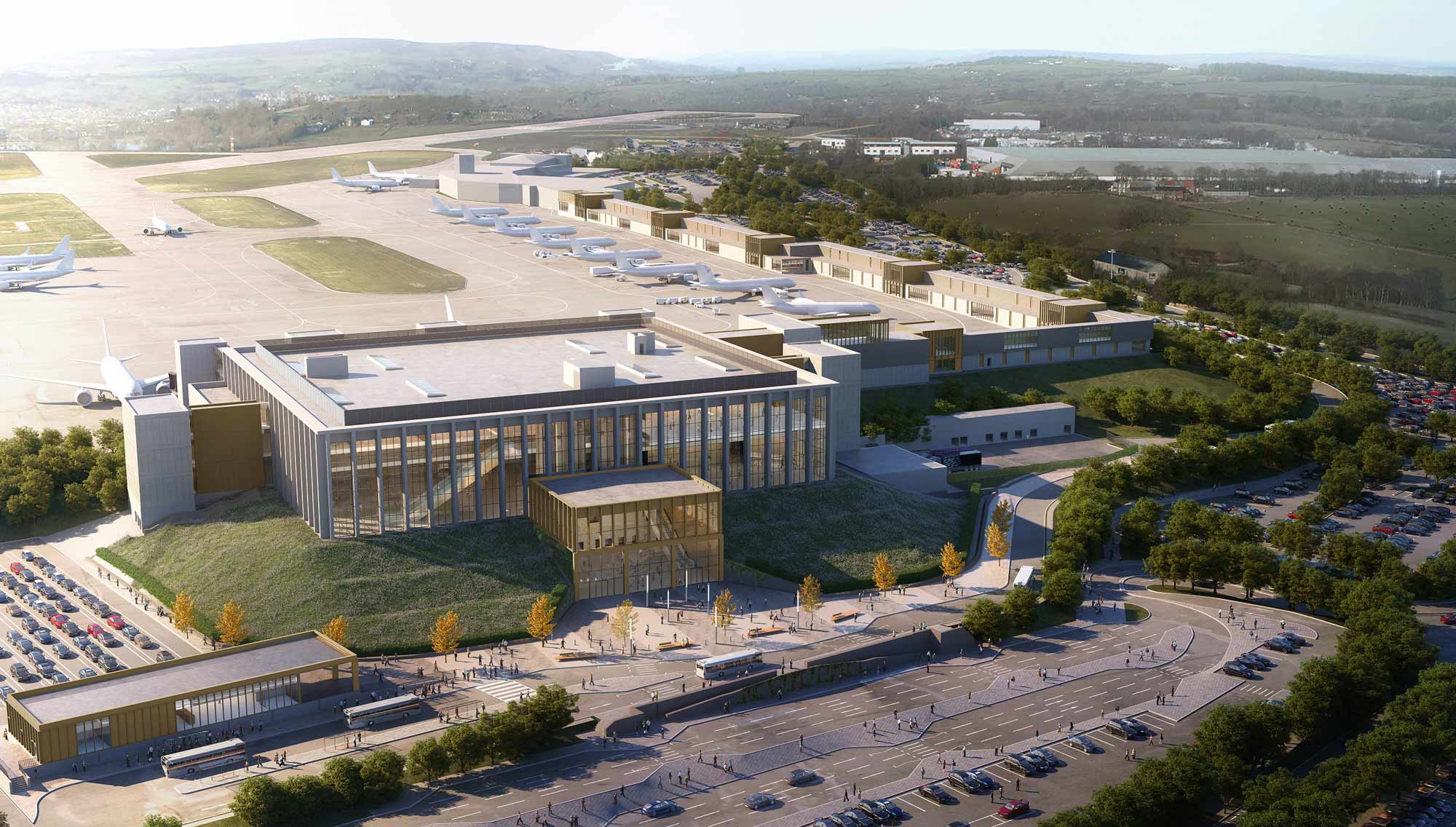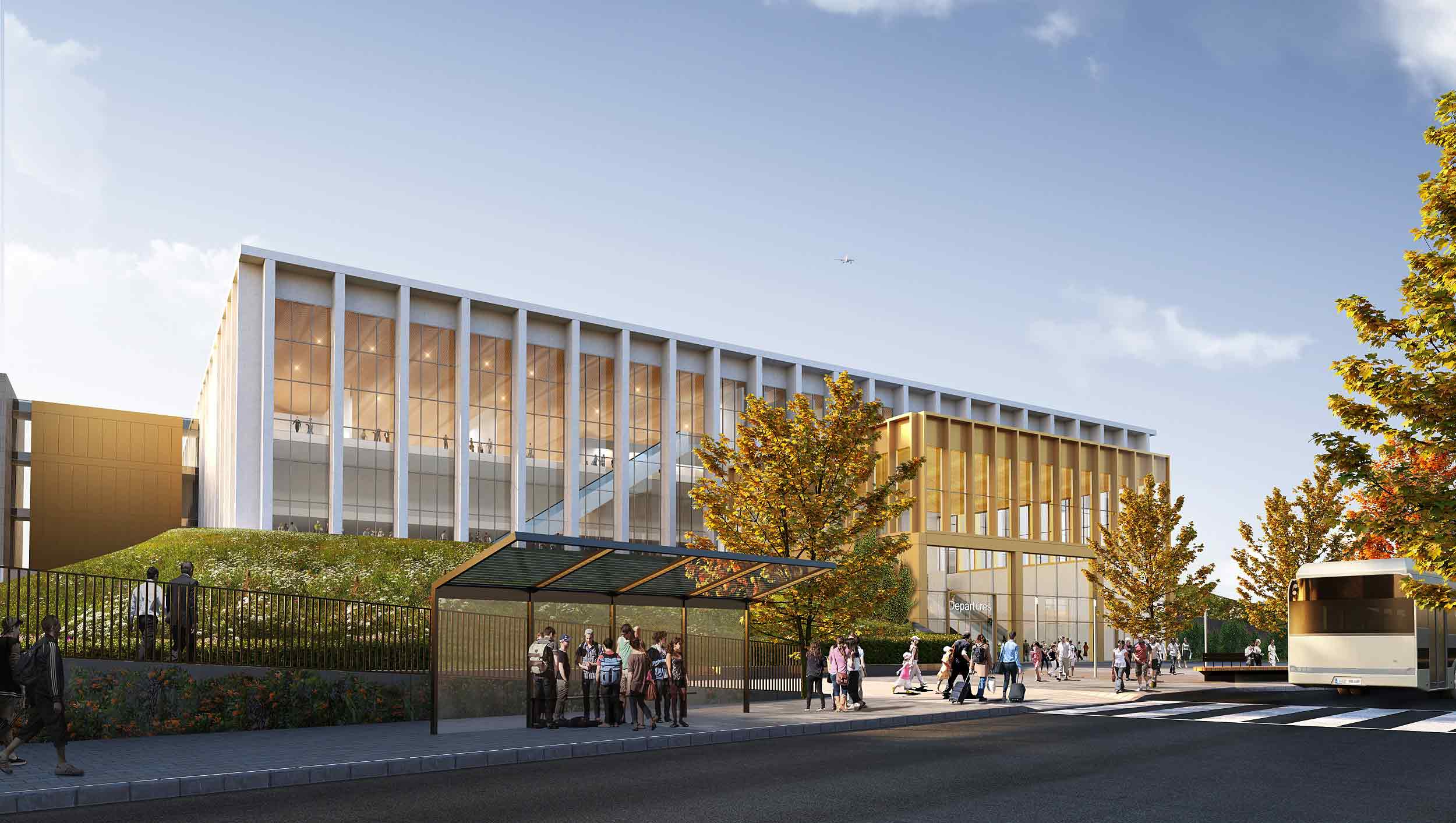Leeds Bradford Airport (LBA) has submitted its planning application to build a new, state-of-the-art replacement terminal to Leeds City Council. The proposal aims to dramatically improve passenger experience, deliver one of the UK’s most environmentally efficient airport buildings, and support the region’s economic prosperity.
- The plans, first announced in January this year, replace a previously consented scheme and LBA’s existing terminal building with a more efficient and sustainable development, enabling the airport to reach its target of becoming carbon net zero by 2023 for airport operations. The plans propose the construction of a three floor, 34,000 sq. mt. replacement terminal on an alternative site within the airport’s boundary.
- Prior to the submission, LBA engaged in an extensive consultative process, with over a thousand residents and organisations across Yorkshire providing feedback on the proposed plans. If approved, it is anticipated that work could begin before the end of 2020, with the terminal completed in 2023.
- LBA estimates that as a result of the development, it will support 12,650 permanent jobs across the Leeds City Region, as well as creating 850 construction related jobs over the period of the build.
Hywel Rees, Chief Executive of Leeds Bradford Airport, said:
The new terminal design allows delivery of existing consented capacity in a more efficient way, with a smaller environmental footprint. The replacement building will have a modern, flexible design whilst achieving operational excellence to give passengers the best experience and address the challenges we know our passengers face far too frequently that cannot be overcome within our current building.
We are committed to the future of LBA and bringing our plans to fruition if approved. This significant investment in the airport will protect and create new jobs, boost international connectivity, and comes at a time when the region and sector need to turbocharge the economic recovery.
Sandy Needham, Chief Executive of the West and North Yorkshire Chamber, said:
Connectivity to markets around the world will remain a major factor in the growth of our regional economy once we are through the current crisis, and so plans to redevelop Leeds Bradford Airport are welcomed by the Chamber. As the economy begins to recover, investment in new infrastructure will provide jobs not only during the construction phase but after works are complete also. As we transition out of the single European market, hopefully with a comprehensive free trade deal, at the end of 2020 it will be more important than ever that Yorkshire businesses can access global markets conveniently. Dealing with the short-term implications of COVID-19 will undoubtedly be at the forefront of the minds of businesses but longer term market entry strategies will benefit from more efficient international connectivity from our regional airport.
In January former Minister for Aviation Paul Maynard gave his backing for the scheme.
- LBA received consent to expand its existing terminal in January 2019 and the airport’s current roadmap signposts a target of seven million passengers by 2030. When complete, the new scheme would deliver significantly enhanced facilities, allowing LBA to meet this expected passenger demand with improved level of service and efficiency. Features to enhance the passenger experience include better surface access, with the site located nearer to the proposed rail link; modern and airy interiors; improved shopping, restaurants and bars; and excellent access and comfort through from arrival to boarding.
- LBA’s existing terminal, built in 1965, is 15th busiest in the UK by passenger numbers. LBA contributed £475m to the local economy in 2018, employing around 2,500 people and supporting over 7,200 jobs.
Group for Action on Leeds Bradford Airport (GALBA) is opposing the development.
GALBA say:
- That passenger volumes will increase from 4,000,000 to 7,100,000 per year by 2030 and up to 9,000,000 by 2050.
- This increase in flying will have drastic consequences on the local area.
- To accommodate the more passengers, the number of flights will be greatly increased with extended flying hours cutting into current “quiet times”
- Attracting more passengers also has a huge impact on local transport infrastructure, with more traffic congestion in the area, & resulting impacts on local air quality.








